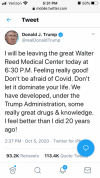Vaccine-Trial Volunteers Look to Make a Difference
The stakes are high as Covid-19 trial participants aim to help people return to their normal lives—and persuade skeptics of vaccines.
By Rolfe Winkler and Jared S. Hopkins
Victoria Smith had lost three patients to Covid-19, while another patient had lost her husband and brother to the virus. So when the New Orleans-area family physician learned in July that her health system would participate in a vaccine trial, she was in the lab to get her first dose the next day.
The trial that Dr. Smith entered, for Pfizer Inc.’s experimental Covid-19 vaccine, seems a lot like any other medical study. There is paperwork, blood work and a pair of shots three weeks apart. She keeps a diary of how she is feeling to share with researchers. She has been paid about $400 so far. And yet the stakes make the Covid-19 vaccine trials unique.
“Being part of a trial to develop a vaccine is what’s going to help us get back to any sense of normalcy,” said Dr. Smith, who is 52 years old. “Because a vaccine is how you really end this pandemic.”
Tens of thousands of Americans are already participating in Phase 3 Covid vaccine trials, while thousands more will be recruited for additional trials beginning soon. They are the tip of the spear in the global fight against the virus, and many of them say they are eager to help people return to their normal lives and disabuse vaccine skeptics.
“The sheer number of Covid-19 vaccine trials in such a concentrated amount of time is unlike anything that I have seen before,” said Mark Blumling, chief executive of Headlands Research. “This is also reflected in the unparalleled enthusiasm” among potential trial enrollees, he added.Headlands is conducting Covid-19 vaccine trials for Pfizer and Moderna Inc. and is planning trials for vaccine candidates from AstraZeneca PLC and Novavax Inc. MMNVAXMMThe vaccines are being developed quickly thanks in part to the rapid mapping of the coronavirus genome and new vaccine-making technologies.In interviews, vaccine-trial participants described a typical trial-enrollment process: a screening phone call, and if they are approved, a three-to-four-hour appointment at a trial research site where patients give detailed medical histories. They give blood, get tests—including a pregnancy test for women—and then receive their first shots. They are observed for 30 minutes to make sure they don’t have a bad reaction. Many trial participants, including those in the Pfizer and Moderna studies, use a smartphone app to keep a diary of any symptoms.
As with many clinical trials in the U.S., participants in the Covid vaccine trials are paid a modest amount, depending on the number of doctor appointments, follow-up calls and other requirements of the studies.
Americans are the primary trial recruits in part because the U.S. has had a hard time controlling infections, said Mr. Blumling. It is easier to gather data on a vaccine’s efficacy if trial participants are regularly exposed to the virus, and researchers including Headlands are recruiting subjects who venture out of their homes to work as well as those who live in Covid hot spots. Volunteers tend to be healthy and white, so Headlands is also looking for people with pre-existing conditions as well as those from diverse racial and age groups who have been hit harder by the virus proportionally.
One such group was Louisiana’s Black population, as Dr. Smith knows all too well.
“Covid is disproportionately impacting African-Americans,” said Dr. Smith, who is Black. “I wanted to be a model to the African-American and Latino community that this is safe and something for you to think about.”
Many of Dr. Smith’s minority patients are skeptical of clinical research, especially those familiar with the infamous Tuskegee experiments, in which Black men with syphilis were studied and tracked for 40 years without their knowledge and not given adequate treatment.
“My participation and dialogue [with patients] is to explain the difference between this kind of trial and what happened with Tuskegee,” she said.
Brad Hoylman, a 54-year-old Pfizer-trial participant, has dealt with intense vaccine skepticism. A state senator from New York, Mr. Hoylman sponsored legislation that removed a religious exemption for vaccinating schoolchildren, following New York’s 2019 measles outbreak.
Vaccine opponents had hounded his staff and his family before Covid, and when he posted photos of himself receiving Covid vaccine shots in August, the internet trolls were waiting. “May your family suffer for eternity,” tweeted one person over a manipulated photo of Mr. Hoylman with a knife held to his neck.
Covid vaccine trials are standard, double-blind studies. For most trials, half of participants receive the vaccine candidate and the rest get a placebo. Participants don’t know which they receive because researchers want both halves of the study to continue their normal routines and expose themselves to Covid. If more people with the placebo are infected, that demonstrates the vaccine provides protection.
It takes time for data to prove that the vaccine provides at least some immunity and then more time to determine duration of immunity, which is why study participants will be monitored for two years.
President Trump has said a vaccine could be ready as early as this month. “The vaccines are coming momentarily,” he said this week. Such predictions contradict experts in his administration, including the director of the Centers for Disease Control and Prevention, who said in September that even if a vaccine is available, it will take six to nine months to get all Americans vaccinated.
Nine pharmaceutical companies working on vaccines signed a pledge in September to “uphold the integrity of the scientific process” as they work toward regulatory approval for Covid-19 vaccines. Pfizer executives have said they expect to see trial results and file for an emergency authorization this month.To receive emergency authorization, the Food and Drug Administration said Tuesday, a vaccine must be 50% effective, roughly the same as the annual flu shot, meaning that trial recipients who received the experimental
vaccine develop no more than half as many Covid cases as those that received a placebo.
Mr. Hoylman said he doesn’t want a vaccine rushed. While he can’t be sure he received the vaccine instead of a placebo, he said he experienced side effects, including a fever, severe body aches, chills and a migraine headache the day after his second shot. Such symptoms are normal for vaccines, and Mr. Hoylman recovered quickly.
When asked about its vaccine, Pfizer referred to its September R&D day presentation, in which it said that in an early-stage study the vaccine was well-tolerated “with only mild- to-moderate events and low incidence of fever and chills in older adults.”
“There’s vaccine hesitancy in this country,” said Dr. Judith Aberg, who is running the trial for Pfizer at New York’s Mount Sinai Hospital. “If we roll out a vaccine and it doesn’t work, and people get Covid, that’s not helping anyone. We need to assure people that it’s going to be safe and it’s going to work.”
A key difference with Covid vaccines is that some leading candidates use unproven technology. Vaccines are simulated infections that induce an immune response. Most vaccines use an inactive or weakened virus. The Pfizer and Moderna “mRNA” vaccines are designed to deliver genetic material to human cells to make proteins that, in turn, trigger the immune system to defend against the coronavirus. The vaccines from AstraZeneca and from Johnson & Johnson use a common-cold virus to deliver genetic instructions teaching the human immune system to mount a defense.AstraZeneca halted new-patient enrollment for its trial in early September after a woman in the U.K. experienced an unexplained illness, which a U.S. official described as a spinal-cord problem. An AstraZeneca spokesman said the company’s trial has resumed in the U.K., Brazil and South Africa, but not yet in the U.S. He declined to discuss details of the illness in the patient that precipitated the pause.
William Relton, a 63-year-old opera director from London, got his first dose of AstraZeneca’s experimental vaccine or a placebo in late August, just days before the trial was suspended. He said he hasn’t experienced side effects, but he said the trial’s halt didn’t give him a moment’s pause about getting his second dose later in September.
“I think it’s the right thing to continue the trial,” he said. “I already had one shot, so a second wouldn’t do a lot of damage.”Like other trial participants, Mr. Relton will dedicate significant time to the trial. He has committed to giving himself throat and nasal swabs weekly for a year to determine whether he has caught Covid. A vaccine, he said, is the only way everyone will be able to return to normal lives. “I want to do whatever I can to help,” he said.
MoreModerna Vows to Not Enforce Covid-19 Vaccine Patents During Pandemic New U.S. Coronavirus Cases Top 50,000 for the First Time in Five Days
Write to Rolfe Winkler at
rolfe.winkler@wsj.com and Jared S. Hopkins at
jared.hopkins@wsj.com
[/ISPOILER]




